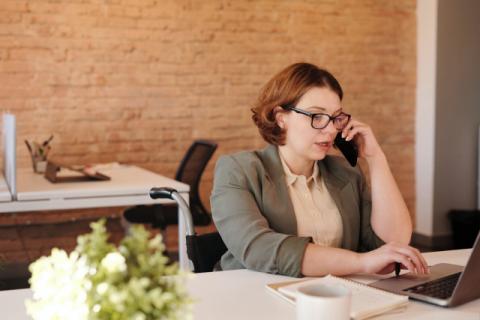Coronavirus - the Reason for Necessary Changes

With millions under lockdown, many non-disabled people are experiencing, for the first time, how it feels to have external barriers preventing you from participating in everyday life. But although countries around the world have put policies and practices in place to make public spaces, workplaces and other aspects of society more accessible, many barriers still exist for people with disabilities.
With disabled people making up 15% of the global population, greater accessibility has the potential to improves millions of lives of those 1.3 billion people. But it would help the non-disabled population, too.
Of course, some changes towards accessibility - such as having buttons at a more accessible height, or making audio descriptions available in museums - wouldn't have made everyone safer in this epidemic. But other changes, had they been implemented earlier, could have.
"Many of the solutions we've needed for this pandemic are the same solutions, like remote working, that disabled people have been requesting for years."
Scarlet points out that many of the solutions we've needed for this pandemic are the same solutions, like remote working, that disabled people have been requesting for years. If we had already built a physically inclusive and accessible society, more could have been done to shorten lockdowns.
Take, for example, the layout and design changes that help people with mobility issues. If all doors already had opened automatically, it would be easier for people with some types of disabilities to move freely. But it also means that no-one would need to touch the doors - which would mitigate one risk of infection, and potentially mean that everyone could, theoretically, go out more, or sooner.
Similarly, if the gaps...
- Log in to post comments
